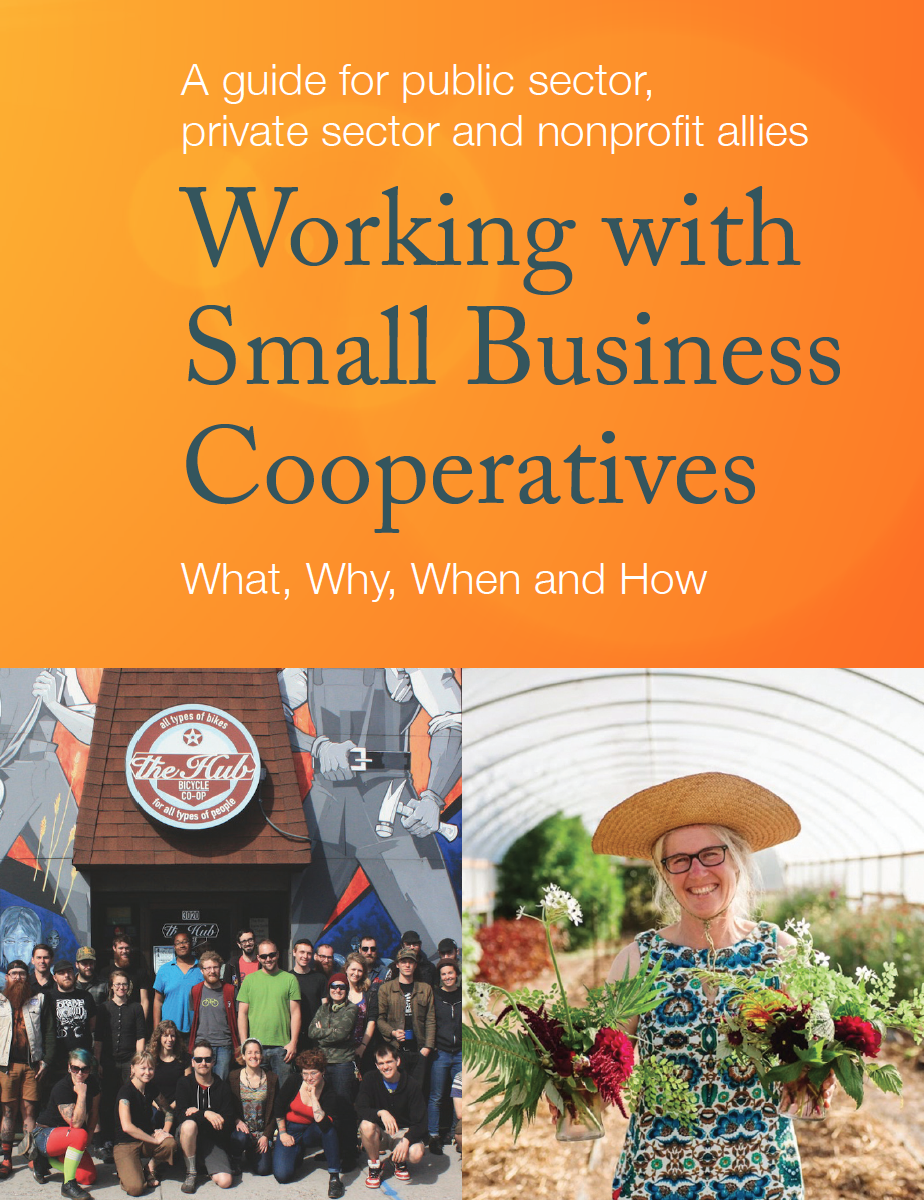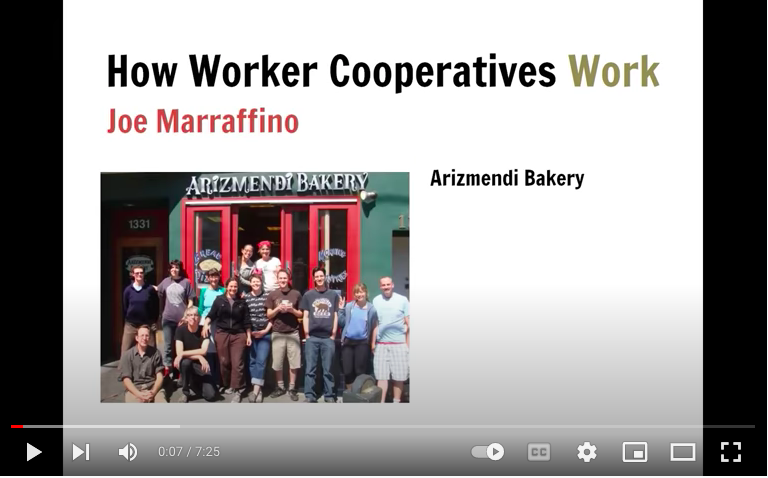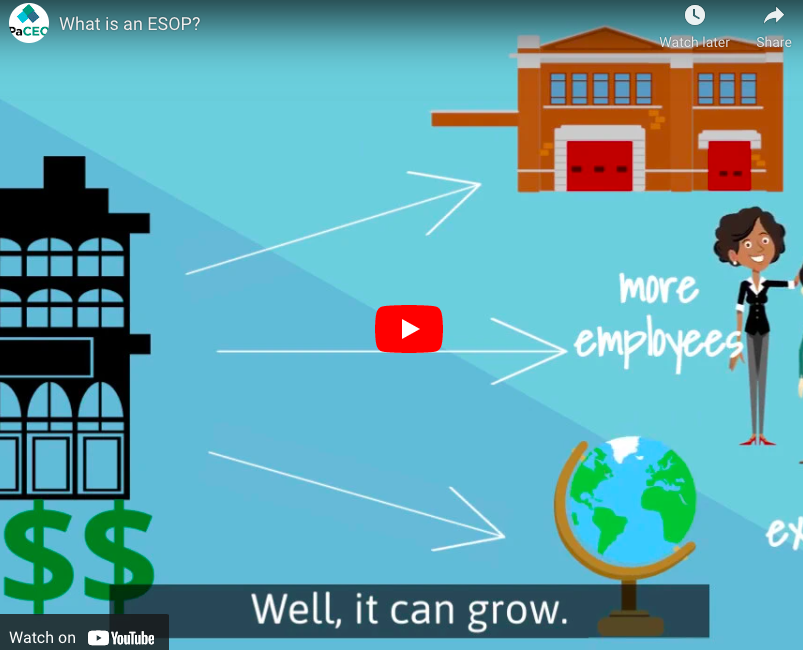Employee Ownership Resources
FAQs
Check out the answers to some frequently asked questions about employee ownership transitions.
What is a worker-owned cooperative?
 A worker-owned cooperative is a business that is directly owned and controlled by the people who work there. It is a great option for the large majority of smaller companies that could not afford to implement an ESOP. Worker cooperative transitions offer some tax benefits to sellers and the new cooperative, though not nearly to the extent that ESOPs do. They are membership-based corporations or LLCs operating on a one-member, one-vote basis. That said, they are usually managed much the same as any other business. Worker-owners receive a portion of the profits of the business on an annual basis and have a say in major decisions of the company, and this direct interest in the success of the business can foster a strong ownership culture.
A worker-owned cooperative is a business that is directly owned and controlled by the people who work there. It is a great option for the large majority of smaller companies that could not afford to implement an ESOP. Worker cooperative transitions offer some tax benefits to sellers and the new cooperative, though not nearly to the extent that ESOPs do. They are membership-based corporations or LLCs operating on a one-member, one-vote basis. That said, they are usually managed much the same as any other business. Worker-owners receive a portion of the profits of the business on an annual basis and have a say in major decisions of the company, and this direct interest in the success of the business can foster a strong ownership culture.
What is an ESOP?

An ESOP, or Employee Stock Ownership Plan, is a qualified, defined-contribution retirement plan invested in the company’s stock. Essentially, the business owner is forming a trust, selling the company to the trust, and the employees are the beneficiaries of that trust. Selling to employees through an ESOP offers substantial tax benefits for both the owner and the company. However, due to the cost of implementing and maintaining an ESOP, it is typically cost prohibitive for most small businesses.
What is a senior management buyout?
 Companies with one or a few experienced and trusted senior managers often explore a senior management buyout. This option can be structured in a variety of ways, but usually entails those managers forgoing bonuses and/or raises for a number of years and receiving company stock instead. In time, this gives them the equity they need to secure enough financing to finish buying out the business owner.
Companies with one or a few experienced and trusted senior managers often explore a senior management buyout. This option can be structured in a variety of ways, but usually entails those managers forgoing bonuses and/or raises for a number of years and receiving company stock instead. In time, this gives them the equity they need to secure enough financing to finish buying out the business owner.
How will employees afford the buyout?

Many owners do not consider options like worker-owned cooperatives or ESOPs because they don’t believe their workers could come up with the money to buy the business. However, that is not the case in either option.
With an ESOP, the owner is selling the company in a highly tax-advantaged transaction and is paid out of future profits of the business. Most ESOP transitions start long before the owner retires, so they are still running the company while they are receiving the proceeds from the sale of it.
In a worker cooperative transition, the employees form a cooperative and the cooperative can get financing to buy the business from numerous lenders who specialize in these transactions. The simple truth is that there can be a variety of ways for a business owner to sell to their workers who do not have individual access to large amounts of capital.
Resources & Reading
Below are some of our favorite educational resources abut employee ownership options.
General Employee Ownership Resources
Two Green Businesses and Their Transition to Employee Ownership
from Exit Planning Institute
Consider an Employee Ownership Transition
from North Carolina Center for Employee Ownership.
Co-op Resources
Successful Cooperative Transitions
from Democracy at Work Institute.
Working With Small Business Cooperatives: A Guide for Public Sector, Private Sector, and Nonprofit Allies
from Democracy at Work Institute.
Working With Small Business Cooperatives: A Guide for Public Sector, Private Sector, and Nonprofit Allies
Video Resource from Democracy at Work Institute.
ESOP Resources
How an Employee Stock Ownership Plan Works
from National Center for Employee Ownership
Why Choose an ESOP?
from the Great Game of Business.
What's an ESOP and how does it grow?
from the Rocky Mountain Employee Ownership Center











